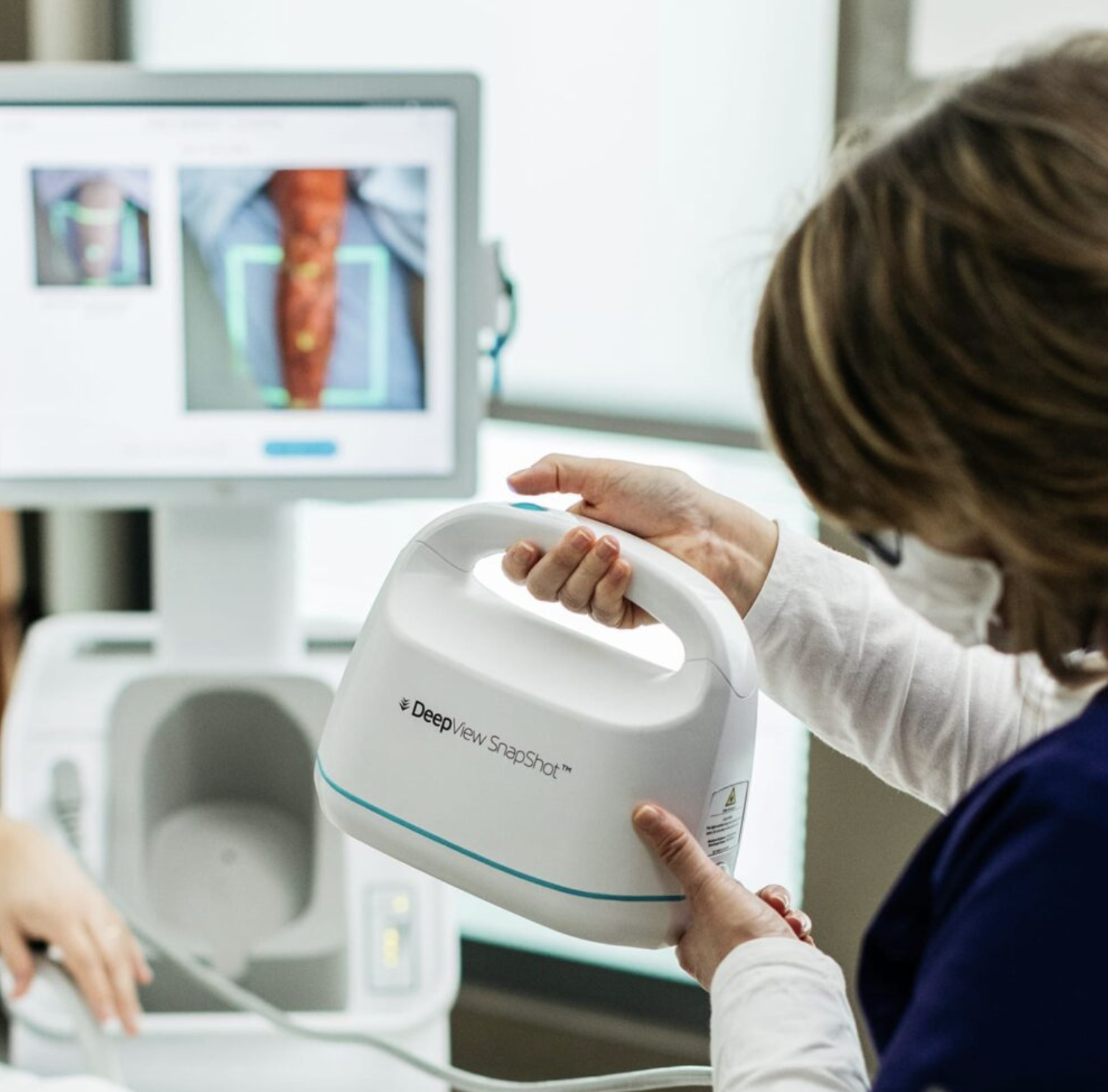
Background
Spectral AI is a pioneering medical technology company dedicated to improving patient outcomes through advanced diagnostic solutions. Specialising in predictive analytics and artificial intelligence, Spectral AI develops cutting-edge imaging devices designed to enhance the speed and accuracy of medical diagnoses.
Their innovative technology focuses on real-time tissue assessment, enabling healthcare professionals to make informed decisions quickly. Spectral AI’s primary product, the DeepView Wound Imaging System, leverages multispectral imaging and AI algorithms to provide non-invasive, immediate, and precise burn and wound assessments.
By collaborating with leading research institutions, hospitals, and government agencies, Spectral AI aims to transform medical diagnostics, reduce healthcare costs, and improve patient care across the globe.
The need
Spectral AI identified a critical need to integrate its advanced DeepView technology with hospital Electronic Patient Records (EPRs) to enhance clinical workflows and improve patient care.
The DeepView technology, comprising a physical multispectral imaging hardware device and AI wound diagnostics software, provides clinicians with immediate wound healing predictions using information invisible to the human eye. However, the existing setup lacked integration with major hospital EPR systems, such as Epic and Cerner, limiting its utility and efficiency within hospital environments.
The technical architecture of DeepView included AWS components like Lambda functions for handling API calls, an S3 bucket for storing generated PDF reports, and DynamoDB for application data storage. Despite its modern capabilities, the lack of direct integration with hospital EPRs meant that clinicians had to manually transfer data and reports, leading to inefficiencies and potential errors.
To address these challenges, Spectral AI aimed to achieve two primary objectives. Firstly, they sought to integrate with Epic and Cerner EPRs to enable automatic pulling of patient data – such as patient observations, conditions, procedures, diagnostic reports, allergies, medications, and service requests – to enrich the AI algorithms. Secondly, they needed to facilitate the seamless pushing of completed PDF reports or images from the DeepView system directly into the patients’ electronic health records, ensuring timely and accurate documentation.
Additionally, Spectral AI planned to decommission several aspects from their application architecture to reduce costs and simplify the solution. This integration with Cerner and Epic would eliminate the need for several utilities, streamlining the overall system and enhancing operational efficiency.
The ultimate goal was to improve clinical outcomes by providing more accurate and timely wound assessments, thereby enhancing patient care and reducing administrative burdens on healthcare providers.

The Solution
6B collaborated with Spectral AI to enhance their DeepView technology with Epic integration and Cerner integration, addressing the need for seamless data exchange and enhanced clinical workflows.
The solution involved developing a .NET web service to act as an intermediary between Spectral AI and the EPR systems, ensuring secure, efficient, and scalable data interactions.
The first step was to register the 6B web service with both Cerner and Epic, enabling access to protected resources via OAuth 2.0. This process involved creating system accounts and obtaining client IDs and secrets to facilitate secure API calls. The web service was designed to pull essential patient data from Cerner and Epic, including observations, conditions, procedures, and medication records, enriching Spectral AI’s AI algorithms.
Data mapping was crucial, converting HL7 FHIR R4 resources from Epic and Cerner into a format compatible with Spectral AI. The integration also allowed the automatic pushing of AI-generated PDF reports and images directly into patients’ electronic health records, streamlining documentation and reducing manual tasks for clinicians.
The web service ensured robust security through TLS encryption, JSON Web Tokens for authentication, and comprehensive audit logging. Scalability was achieved using a microservices architecture, Docker containers, and Kubernetes for orchestration, with cloud hosting on AWS providing elastic scaling and high availability.
Through this integration, Spectral AI could offer hospitals a more efficient and effective wound assessment solution, significantly enhancing clinical workflows and patient care.
The Impact
The newly implemented solution by 6B for Spectral AI has just gone live, marking a significant advancement in wound care technology integration.
Early feedback from clinicians highlights the system’s efficiency and ease of use. The seamless integration with Epic and Cerner EPR systems has drastically reduced administrative tasks, allowing healthcare providers to focus more on patient care. Automated data exchange has enriched AI algorithms, improving the accuracy and speed of wound healing predictions. The secure and scalable architecture ensures reliable performance, even under fluctuating workloads.
This innovative solution is expected to enhance clinical outcomes, streamline workflows, and improve patient satisfaction across healthcare organisations adopting DeepView technology.
“6B has been instrumental in taking Spectral AI’s DeepView technology to the next level by roadmapping its integration with major EHR systems like Epic and Cerner.
The expertise and dedication from the 6B team have significantly improved our system capability and enabled automatic data exchange between the DeepView system & EHR networks. This integration will make the use of DeepView systems in real-world settings seamless and impactful.”
– Yunjie Zang, Project Manager, Spectral AI